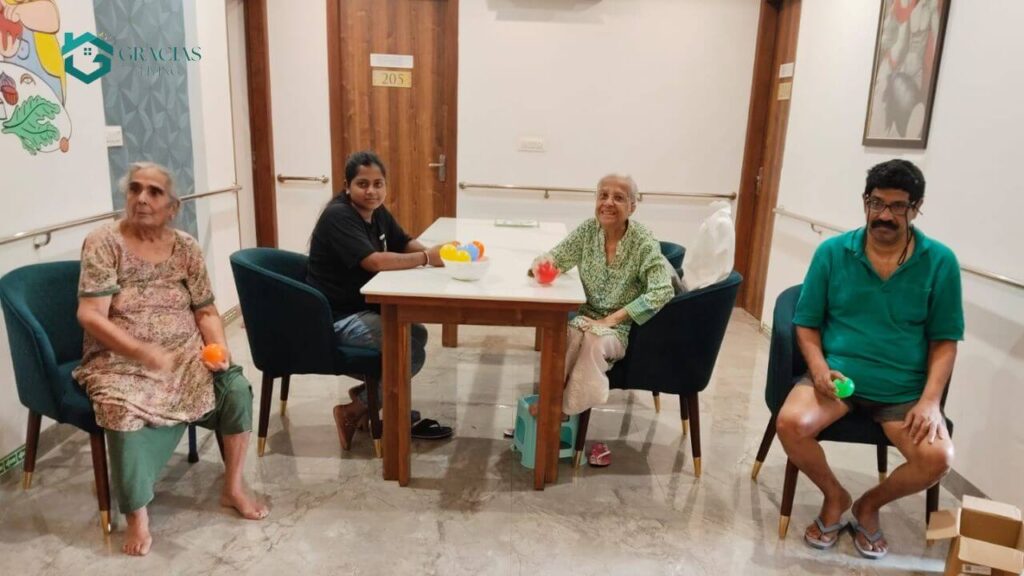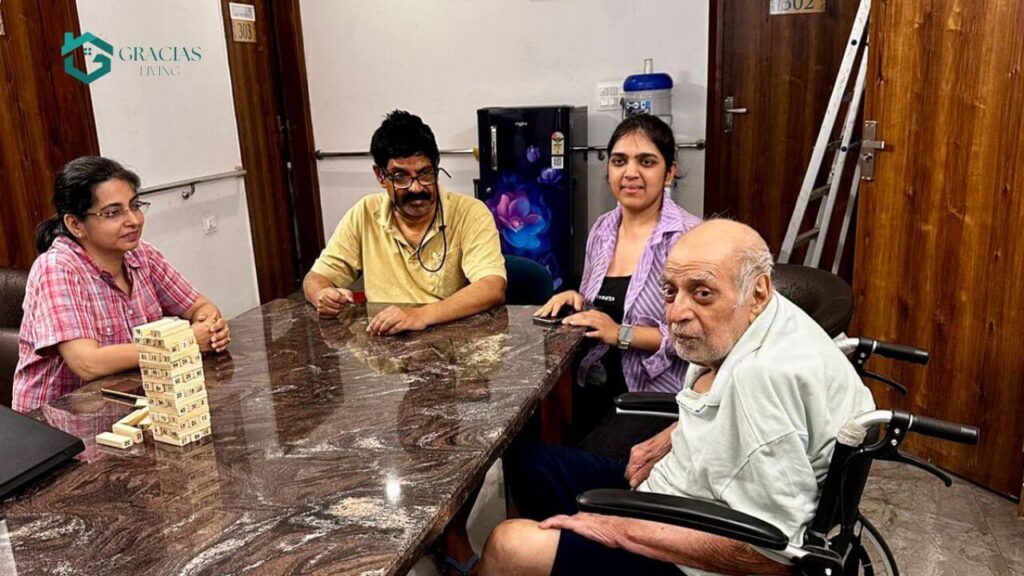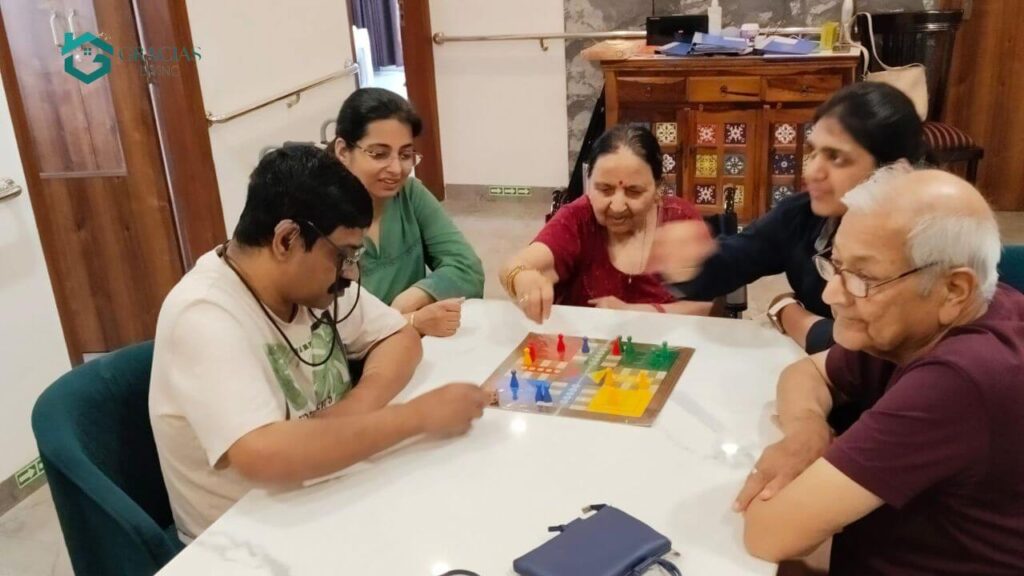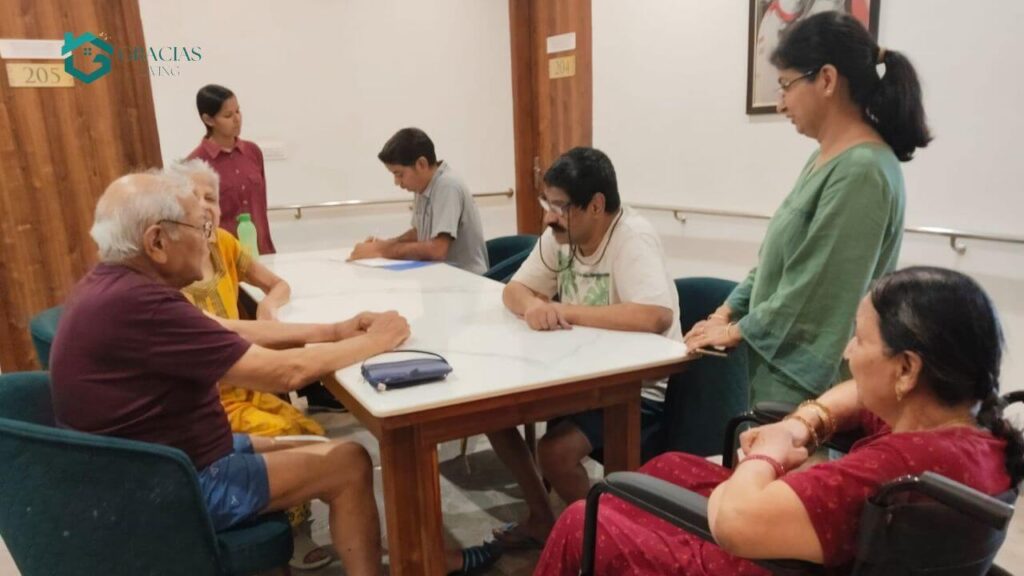Quick Summary of the article:
- Person-centered dementia care focuses on individual needs and preferences to enhance dignity and quality of life.
- Effective communication in dementia care involves using simple language and non-verbal cues to reduce frustration and improve understanding.
- Creating a safe environment for dementia care ensures a hazard-free, well-lit, and organized space to enhance safety and reduce confusion.
- Engaging activities in dementia care boosts the cognitive function and mood of dementia patients.
- Caregiver support in dementia care includes offering resources, support groups, and respite care to alleviate caregiver stress and improve care quality.
When a family member is diagnosed with dementia, the search for the best care can feel overwhelming.
Caring for a family member with dementia is a journey filled with challenges and important decisions, from choosing the right care facility to understanding the costs involved.
We are simplifying the process for you, and offering clear insights into the various options, fees, and support systems available.
With the right information, you can find the best Dementia care option for your loved ones.

Dementia Care Essentials: Where is the Best Place to Go for Dementia Patients?
The best place for dementia patients often depends on their specific needs. Assisted living facilities, like Gracias Living, offer specialized care tailored to individuals with dementia.
These facilities provide a safe environment with 24/7 supervision, structured activities, and professional medical support.
Another option is memory care units, which are specifically designed for dementia patients, offering a higher level of security and specialized staff trained in dementia care.
For Care at home, professional in-home care services can provide the necessary support. However, it’s crucial to ensure the home environment is safe and that caregivers are well-trained in dementia care.

What is the High Cost of Dementia Care?
Dementia care can be expensive due to the intensive support required. The costs vary depending on the type of care and location.
On average, assisted living facilities with dementia care services can cost between Rs 1,20,000/- to Rs 1,60,000/- per month.
Memory care units, offering more specialized services, may be more expensive. In-home care can also be costly, with professional caregivers charging between Rs 48,000/- to Rs 60,000/- per month.
Dementia care can be expensive due to the intensive support required. Here are the key factors contributing to the high cost:
- Professional Staffing: Dementia patients require care from highly trained professionals, including nurses, therapists, and aides. The salaries for these skilled workers are a significant part of the cost.
- Specialized Facilities and Services: Memory care units and other specialized facilities are designed to meet the unique needs of dementia patients, offering secure environments and tailored activities, which add to the overall cost.
- Comprehensive Care: Costs cover a wide range of services such as medical care, personal assistance, activities, meals, and housekeeping. This comprehensive support ensures the well-being and safety of the patients.
- Location: Costs can vary significantly based on geographic location. Urban areas tend to have higher costs compared to rural areas due to the higher cost of living and increased demand for services.
While the price may seem high, the comprehensive support and peace of mind provided are invaluable. Planning and exploring financial assistance options can help manage these costs.

Is Care for Dementia Patients Free?
Care for dementia patients is rarely free.
However, some resources and programs can help alleviate the financial burden. Government programs/ care Centers may cover some costs, but they often have strict eligibility requirements and may not cover all types of care.
Additionally, some non-profit organizations offer financial assistance or subsidized care options for families in need.
What Type of Care is Best for Dementia Patients?
The best type of care for dementia patients is one that meets their specific needs and provides a supportive, safe environment. Here are some types of care to consider:
- Assisted Living Facilities: Ideal for those who need help with daily activities but do not require intensive medical care. These facilities offer a balance of independence and support.
- Memory Care Units: Specialized facilities designed to provide enhanced security and dementia-specific care. They offer structured activities that focus on cognitive stimulation and maintaining quality of life.
- In-Home Care: Suitable for those who prefer to remain in their homes, provided they have access to professional caregiving services. This option allows for a personalized approach in a familiar setting.
- Adult Day Care: Offers a break for family caregivers and provides social interaction and activities for dementia patients during the day. These centers often provide therapeutic activities and meals.
- Respite Care: Temporary care that provides relief for primary caregivers, ensuring that patients continue to receive quality care while caregivers take a break.
- Hospice and Palliative Care: Focuses on comfort and quality of life for patients in the late stages of dementia. These services address pain management and emotional support, providing a compassionate approach to end-of-life care.
- Continuing Care Retirement Communities (CCRCs): These communities offer a range of care options, from independent living to skilled nursing care, allowing patients to transition as their needs change.

What is the Average Stay in a Care Home with Dementia Patients?
The average stay in a care home for dementia patients can vary widely based on several factors, including the stage of dementia at the time of admission, the individual’s overall health, and the type of care home.
However, some general statistics and considerations include:
- Average Duration: Studies suggest that the average length of stay for dementia patients in care homes ranges from 2 to 4 years. This can be longer or shorter depending on the progression of the disease and the individual’s specific needs.
- Factors Influencing Stay:
- Stage of Dementia: Patients admitted in the early stages of dementia may have a longer stay compared to those admitted in the later stages.
- Health Conditions: Co-existing health conditions, such as heart disease or diabetes, can impact the duration of stay.
- Type of Care Home: Memory care units and specialized dementia care homes often have residents with more advanced dementia, which may affect the length of stay.
- End-of-Life Care: Some dementia care homes provide hospice and palliative care services, allowing residents to remain in the facility until the end of life. This continuity of care can be beneficial for both residents and their families.
- Transitions: In some cases, residents may transition from one type of care home to another as their needs change. For example, a patient might start in an assisted living facility and move to a memory care unit as their dementia progresses.
Understanding these aspects can help families plan for the long-term care needs of their loved ones with dementia, ensuring they receive the appropriate support and services throughout their journey.
Conclusion
Finding the right care for a dementia patient involves considering their specific needs, the level of care required, and the available resources.
At Gracias Living, we are committed to providing compassionate and professional care tailored to each individual, ensuring their safety, comfort, and well-being.




